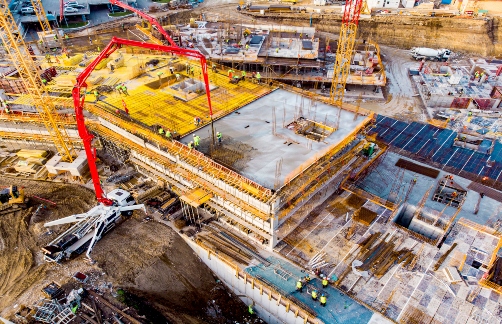In response to the need to address the built environment’s impact on climate change, the Built Environment Carbon Database (BECD) has been developed and is now available. The initiative aims to drive down carbon emissions in the built environment through better data and understanding of embodied carbon.
The BECD is hosted by BCIS and created with partners BRE, RICS, CIBSE, the UK Green Building Council, the Carbon Trust, RIBA, the Institution of Structural Engineers, and the Institution of Civil Engineers.
Industry collaboration is key to the success of BECD. It acts as a platform for people to share information on low carbon building practices. By incorporating a whole-life carbon perspective, including both upfront and embodied carbon, the BECD encourages the use of standardised formats to enable direct comparisons between similar assets. This method helps to paint a detailed picture of best practices, highlighting evidence-based outcomes and continuous efforts.
BCIS is eager for industry stakeholders to input as much data as possible in order for the BECD to reach its full potential. BCIS CEO, James Fiske said:
“We desperately need to reduce emissions in the built environment and the BECD is our best chance at sharing our experiences for everyone’s benefit. I implore everyone to use it and not to let it become another footnote in the history of things we could have done to combat climate change, but let the opportunity pass us by.”
The data from the BECD will also be used in BREEAM. BREEAM uses data from the BECD as a blend of private and public sources for its industry-leading benchmarking and assessment processes.
The integration of BECD data into BREEAM enriches the accuracy and depth of our benchmarking, ensuring that those using the scheme have a clearer perspective on their environmental impact.
As well as collecting carbon data, BREEAM also considers factors like energy efficiency, water usage, and biodiversity. This approach captures a spectrum of sustainability elements for a lasting commitment to environmental responsibility.
The combination of data from public, shared, and private sources is also being used in BRE’s world-leading work on climate change, with a focus on the upcoming BREEAM version 7 scheduled for release next year.

